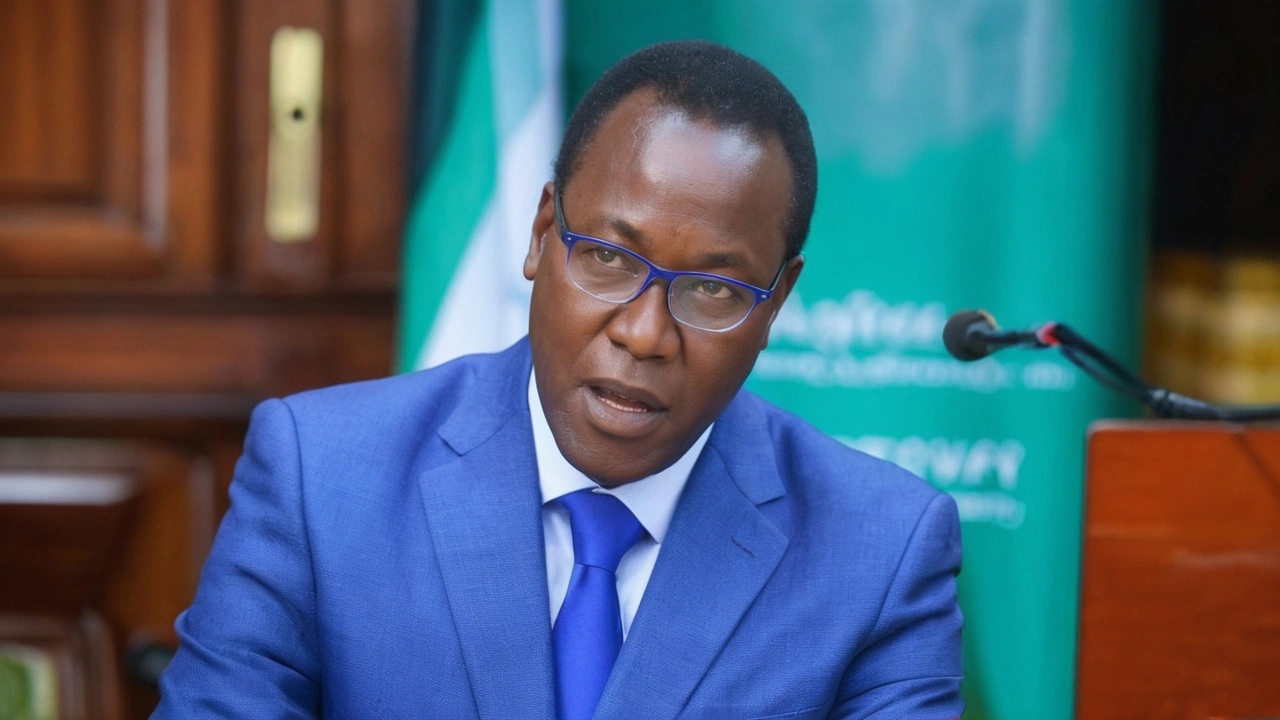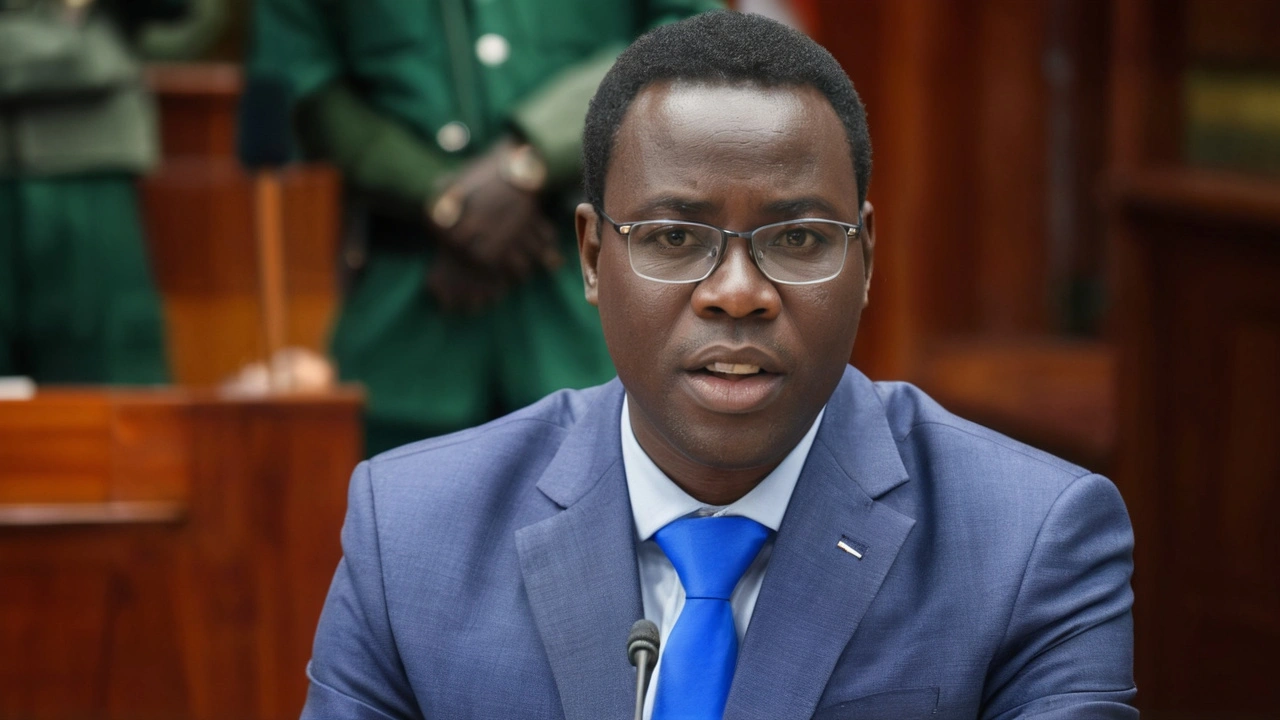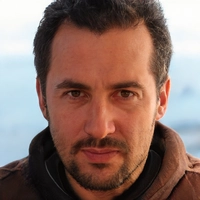Opiyo Wandayi's Policy Shift Under the Microscope During Cabinet Vetting
Opiyo Wandayi, the nominee for the position of Energy and Petroleum Cabinet Secretary, found himself in hot water during his vetting recently. The primary area of concern was his stark opposition to the policies of President William Ruto, which now seemed to conflict with his proposed role in implementing them. The grilling session lasted several hours, revealing the complexities of transitioning from an outspoken opposition member to a key component of government machinery.
Wandayi was keen to address the elephant in the room right from the onset. He acknowledged his previous criticisms of Ruto’s policies but assured the vetting committee of his readiness to align with the administration’s agenda. According to Wandayi, his earlier role as an opposition leader was framed by the constitutional duty to provide oversight and hold the government accountable. This, he emphasized, was not a rejection of Ruto himself, but a stand against specific governance issues and policies he found wanting.
A Commitment to Reforms in the Energy Sector
Wandayi outlined a roadmap for radical reforms within the energy sector, an area notoriously plagued with challenges. His proposed strategies were geared towards modernizing the energy infrastructure, which he believes is fundamental to resolving prevalent issues like the frequent power outages experienced across the country. Geothermal energy, according to Wandayi, should be the cornerstone of the nation’s energy strategy. He cited its sustainability and potential to drive down costs as primary benefits.
Furthermore, Wandayi delved into the contentious 'take-or-pay' agreements with Independent Power Producers (IPPs). These agreements, he argued, were financially draining and unsustainable in the long term. By tackling these agreements head-on, he believes that the sector can be reformed to focus on cost-efficiency and reliability. This, however, is easier said than done, given the legal and financial implications intertwined with these existing contracts.
An Unexpected Transition
The vetting process served as a stark reminder of the challenges inherent in shifting roles from opposition to government. Wandayi himself conceded that it is relatively uncharted territory for him, but also firmly stated that his core beliefs—especially his stance against corruption and poor governance—remain unchanged. It is his steadfast commitment to these principles, he argued, that would guide him in his new role.
One significant question posed to Wandayi was how he planned to stomach policies he had vehemently opposed. In response, he paraphrased a line often attributed to the pragmatism needed in political life: contexts change, and with them, strategies must evolve. Wandayi underscored that his primary responsibility now was to serve the citizens by ensuring effective policy implementation, irrespective of his prior positions.
Modernizing Power Transmission
One of Wandayi’s flagship proposals was the modernization of power transmission infrastructure. The current system is outdated, inefficient, and a significant contributor to the persistent blackout issues. Wandayi proposed an overhaul of the transmission grid, leveraging modern technologies to enhance both efficiency and reliability. This would, of course, require substantial investment and a meticulous implementation plan.
Geothermal and Energy Auctions
Wandayi also shared his vision for the future of energy procurement through the adoption of energy auctions. This approach, he posited, would bring about transparency and competitiveness, driving down the cost and ensuring more efficient allocation of resources. Especially significant in his plan was the focus on geothermal energy as a sustainable and economically viable option for meeting the country’s energy needs.
Balancing Prior Criticisms and Current Role
Another point of intense discussion was Wandayi’s vehement criticisms of the administration’s approach to energy policy. He admitted that some policies of the past had been inefficient but assured the committee of his ability to administer those same policies effectively when given a chance. His argument pivoted on the difference between criticizing policy from an outsider’s perspective and having the chance to implement change from within.
By the end of the vetting session, Wandayi’s responses painted a picture of a man committed to the watchwords of efficiency and modernization, despite the inherent contradictions in his new role. The balancing act between previous public positions and the practicalities of governance would require a careful, well-strategized approach. Wandayi’s quantified hopes hinge on his ability to retain his core values while navigating the intricate landscape of government implementation.

Concluding Remarks
In conclusion, the vetting of Opiyo Wandayi for the Energy and Petroleum Cabinet Secretary position brought out both challenges and opportunities inherent in his nomination. His past criticisms of the administration were both a point of contention and a testament to his unwavering stance against inefficiencies and corruption. The real test lies ahead, as Wandayi will be expected to align his demonstrated convictions with effective policy implementation. His proposals on geothermal energy, reforming 'take-or-pay' agreements, and modernizing power infrastructure offer a roadmap for potential transformation within the sector. However, the true measure of his success will be his ability to converge the overarching aims of the Ruto administration with his long-held principles for the greater good of the nation.

